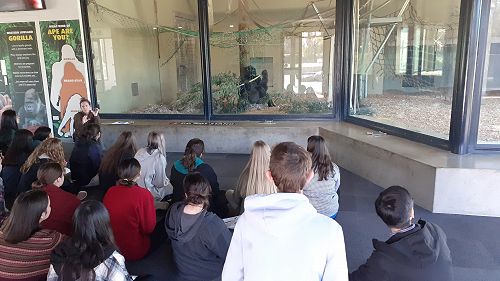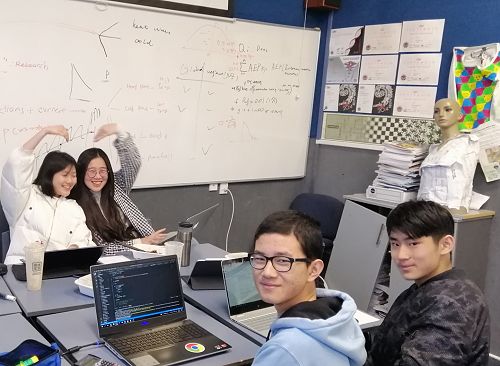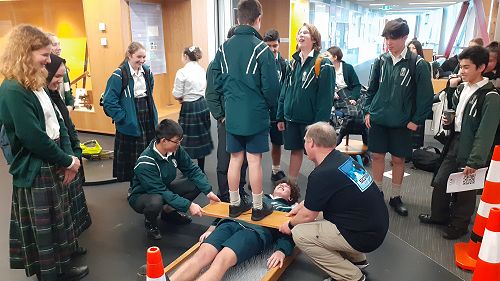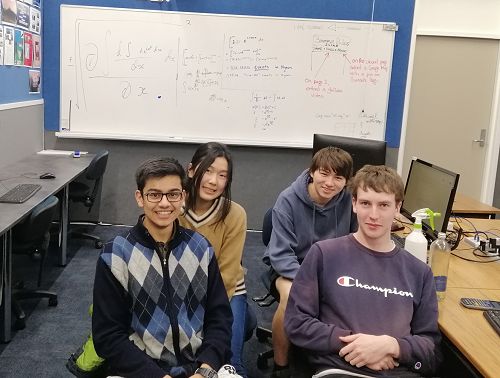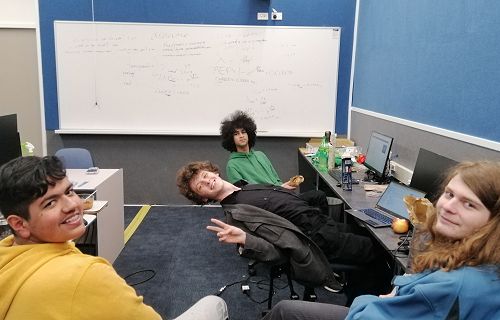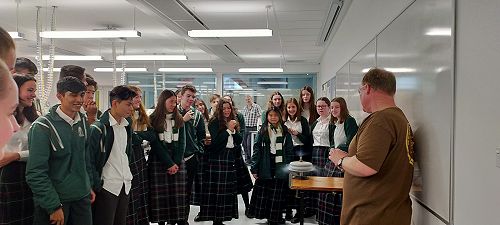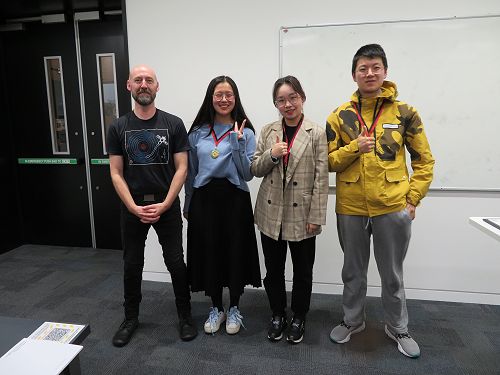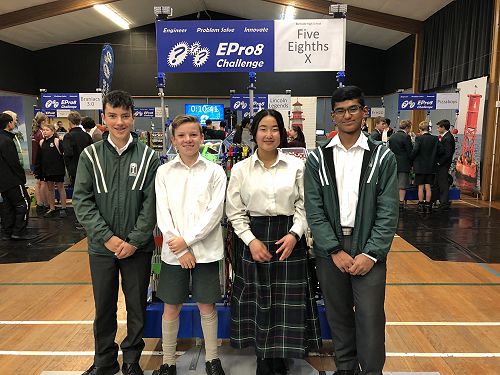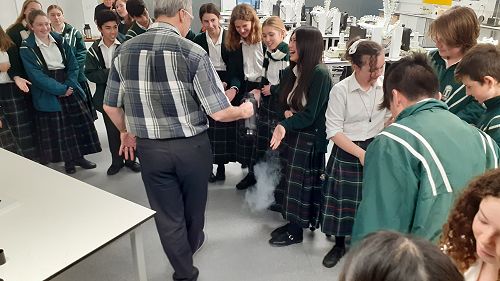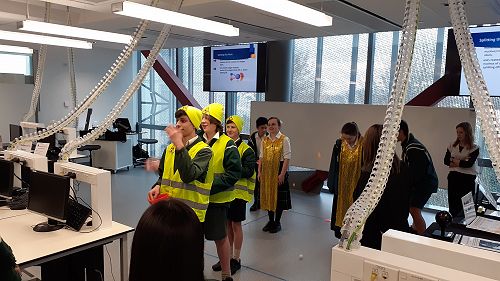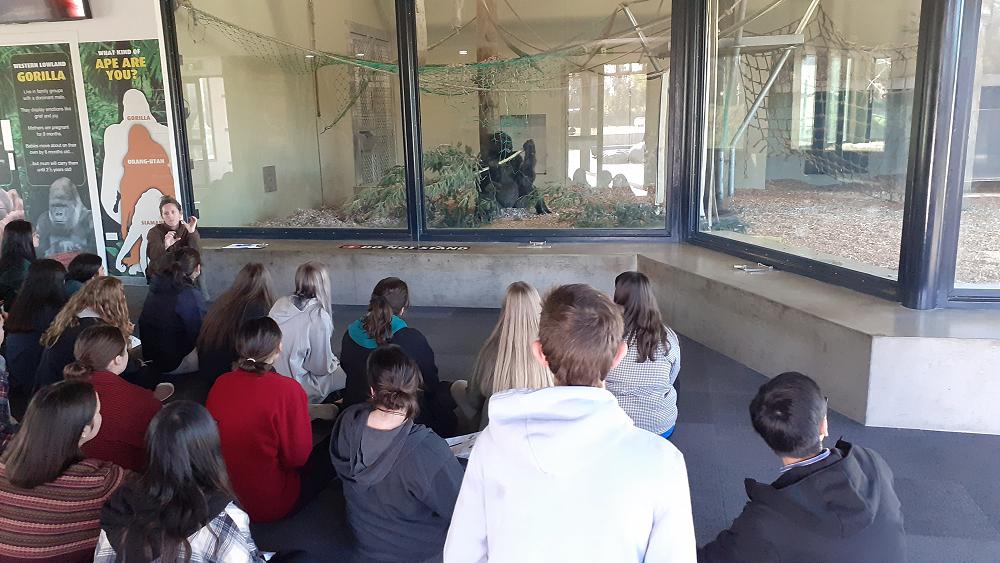
Student activities and successes in the Science Faculty for 2021
Despite a slightly interrupted year again there have been lots of great things happening across the Science Faculty this year, with students succeeding well, both in school and out of school. Some highlights are:
Science
In Term 2 we had five teams of four students from Burnside High School compete in the Epro8 challenge heats at Hillmorton High, using various equipment to design and build a machine which fulfilled the requirements of the selected challenges. Using their knowledge of Science, Mathematics, Electronics and problem solving skills, they tackled the challenges with valor and wit. The students involved were: Ahmed Abdelfadil, Taylor Blackbourn, James English, Petar Filipovic, Angus Hay, Ysabella Ho, Katie Horton, Daniel Howie, Zoey Kenix, Daniel Lough, Haasini Mantena, Nicola McLachlan, Maya Rodnyanskiy, Roi Saxon, Shivam Shankar, Zoe Sole, William Terry, Charlie Wichman, Erin Yamada, Ahmed Zohiry. Congratulations goes to all students for the effort they put into their problem solving! A special congratulations goes to Daniel Howie, Daniel Lough, Shivam Shankar and Erin Yamada’s team who made it to the grand final and came in 9th out of 48 teams in Canterbury.
We had 28 Year 9 to Year 13 students participate in the International competitions and assessments for schools (ICAS) Science competition in 2021 at the start of Term Four. This consisted of a multi-choice online test done over a 60 minute period. Congratulations goes to Fiona Li (13SRT) and Matthew Rickard (10NTEM) for gaining Distinction awards and Ryan Li (9SOSC), Ysabella Ho (10STNZ), James Wang (12WWIC) and Grady Kenix (12SOSS) for gaining High Distinction awards. High Distinction places them in the top 1% for NZ entries.
Three Year 10 students Zedi Craig, Anahera Inns and Malachi Kereama were selected to participate in the project, He Puna Pūtaiao in Term Four of 2021. This project is in collaboration with the University of Canterbury (UC) and involves the students spending six days at the University carrying out an investigation into the water quality of Te Waihora (Lake Ellesmere). The students did background research before going to Te Waihora to collect samples to analyse back at the University. They have completed the sessions at UC and summarised their findings in a University Level Poster display, well done!
Our Year 11 Extension Science and Year 12 General Science students went to the University of Canterbury as part of their study of Radioactivity and Models of the atom. There they conducted experiments looking at the activity of different Radioactive sources and half-life. The other part of the day was spent interacting with resources from Rutherford’s Den around the history of the atom before getting a tour of the Physical and Chemical Sciences building to look at applications of Physics.
Congratulations goes to Carol Khor who received a scholarship to attend The Rotary National Science and Technology Forum in January of 2022. However, due to this event running in Auckland it will not go ahead in 2022.
Physics
A team of three Year 13 students; Fiona Li, Shanika Yu and Oliver Fan, entered and won the regional Young Physicists’ Tournament hosted at the University of Canterbury in May, and came third in the online National Final held soon after. The students researched their chosen topics, then on competition day they presented and defended their findings against opponents from other schools. A great deal of fun, and a great way to learn how Physics researchers carry out their work.
Many of our students at all year levels entered the NZPMC (New Zealand Physics and Mathematics Competition), and Burnside came away with some impressive results, winning 13% of all the Distinction prizes awarded nationwide. Our top students were Erin Yamada (2nd Y10 student), James Wang (2nd Y12 student) and William Falconer Beach (4th Y13 student).
Twelve of our aspiring engineers entered the Engineering Science Competition run by the University of Auckland. The competition ran one Saturday in August over nine hours, with the challenge being to answer this question posed in the morning: “How many 1 in 100 year extreme weather events can NZ expect to experience over the course of the next decade?”
All Year 12 Physics students were hosted by the EPECentre (Electric Power Engineering Centre) at UC for some activities in the Electrical Engineering Labs and a visit to the Rutherford building which houses the Physics Department. Student activities involved programming steering vanes for model rockets, maximising efficiency for wind turbines and a code cracker activity using oscilloscopes, along with demonstrations from the high voltage, laser and nanotechnology labs.
Biology
Year 13 Biology students began the year by developing an investigation into the effect of activity on human blood pressure. This was once again supported by Dr Peter Olsen and his team from Ara Institute of Canterbury. Students appreciated the advice Dr Olsen provided and made good use of the equipment to allow them to gather data for their experiments.
In Term two Year 13 Biology students had the opportunity to visit Orana Park as part of the Human Evolution topic. This is always a highlight for staff and students as we get to observe primate species up close as well as hear the latest developments in the story of human evolution from the knowledgeable zoo staff. The extensive skull collection in the zoo school also allows students to interact with the skulls of the ancestors we have been discussing in classes.
During Term three Year 13 Biology students had Professor Jon Hickford, from the Department of Agricultural Sciences at Lincoln University, speak to them. Professor Hickford is a world leading expert in animal breeding and genetics. He spoke to the students about his studies on selective breeding in sheep, starting with a historical overview of sheep breeding, then discussing the implications and technological innovations that are now involved in this process. Professor Hickford also shared some of his studies and findings with the students. Students used this information to help them develop their reports on their final internal assessment of the year about genetic manipulation.
Year 12 Biology began the year learning about gas exchange in three different animals. This involved dissecting insects, fish and sheep lungs to allow them to investigate gas exchange in these animal groups. Observations and diagrams or photos were used as part of their report for this topic. Following this the Year 12 Biology students investigated the goal of Aotearoa becoming predator free by 2050. This involved a field trip to Zero Invasive Pests and Lincoln University. Tom Agnew, the predator behaviour team leader from ZIP introduced students to traps that are currently used to control pests, stoats, as well as allowing students to see some of the innovative trapping techniques that are being developed. He also spoke about his thoughts on the future of trapping pests in New Zealand. At Lincoln University, students heard from Dr James Ross, an Associate Professor in the Department of Pest Management and Conservation. Dr Ross spoke about the situation of managing rats in New Zealand, the issues they are causing and whether we can completely eliminate these pests. The information students received from ZIP and Lincoln University is directly applicable to their assessment of this topic.
A number of Biology students sat the New Zealand International Biology Olympiad Entrance Exam in August. Jennifer Chang, Ian Han, Thy Phan, Grady Kenix, Zoey Kenix and Carol Khor were selected to move onto the next stage in this program. These students are part of the top 270 Biology students across New Zealand taking part. The next step involves an intensive course of Biology training tutorials, which will continue into 2022. This will lead onto the NZIBO camp selection next year where the top 20-25 of these students will take part in a residential practical training camp.
Chemistry
Following on from his success in 2020, Tomson Zhang carried out additional Chemistry study during Term one and ranked amongst the best in the country in the Chemistry Olympiad Examination in March. He was selected to attend the final training camp in Auckland for an intensive 3 days of learning and testing. While he did not make the 4 person Olympiad team his success in progressing through the various stages is an impressive achievement. Congratulations Tomson!
The selection process for the 2022 Olympiad team started in October. From the initial test we have four students selected to enter the initial training squad. They are Ritvik Sharma, Oscar Chin, Grady Kenix and James Wang - who finished on top for the country with a perfect 100%. They now have the training material to continue on with this endeavour in 2022.
Miss O’Loughlin, HOF Science
Gallery
